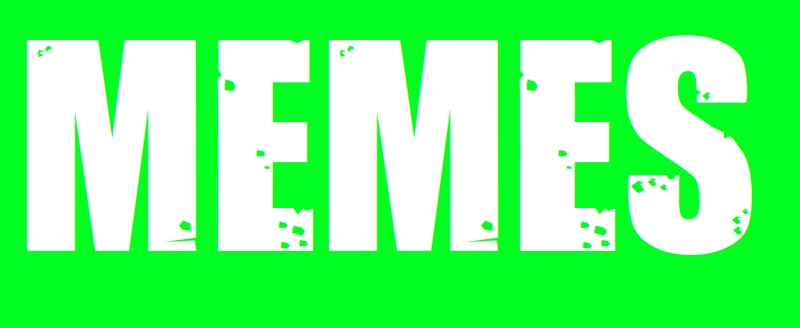Enemy is vulnerable to ice? Bulk ice cube vending machine. Enemy vulnerable to fire? Gasoline pump. Enemy has a blind spot above them? Party balloon vending machine. Enemy vulnerable to being crushed by 20 ton bulk ice cube vending machine that just transformed from floating party balloon bending machine mid-air?
baltakatei
/ˈbɑːltəkʊteɪ/. Knows some chemistry and piping stuff. TeXmacs user.
Website: reboil.com
Mastodon: baltakatei@twit.social
- 0 Posts
- 145 Comments
Most dogs have servile idiot personalities. This makes me suspicious of anyone who says they are a “dog person”. It’s not a great accomplishment to be loved by a creature literally bred to love their master unconditionally.

 5·29 days ago
5·29 days agoTrunp is just that Good’s death is distracting from his presence in the Epstein files.

 7·29 days ago
7·29 days agoNice proposal, but like Lucy Van Pelt and footballs, Trunp is not known for his integrity.
Like a watermelon but nutty?
Voting with your wallet is the thing that’ll be the the most notably change in an earnings call.
Voting to break up monopolies via anti-trust law enforcement will have more effect. “Voting with your wallet” is useless when oligarchs buy out their competitors on this hypothetical voting ballot.

 21·2 months ago
21·2 months agoWinter solstice sacrifice mythology reminds me of Hogfather (1996) by Terry Pratchett about a fantasy world’s equivalent to Santa Claus who also wore red and white (blood on the snow) and was associated with gift giving/sacrifice:
Excerpt
… Images ribboned across her senses—wet fur, sweat, pine, soot, iced air, the tang of damp ash, pig…manure, her governess mind hastily corrected. There was blood…and the taste of…beans? It was all images without words. Almost…animal.
“But none of this is right! Everyone knows he’s a jolly old fat man who hands out presents to kids!” she said aloud.
“Is. Is. Not was. You know how it is,” said the raven.
“Do I?”
“It’s like, you know, industrial retraining,” said the bird. “Even gods have to move with the times, am I right? He was probably quite different thousands of years ago. Stands to reason. No one wore stockings, for one thing.” He scratched at his beak.
“Yersss,” he continued expansively, “he was probably just your basic winter demi-urge. You know…blood on the snow, making the sun come up. Starts off with animal sacrifice, y’know, hunt some big hairy animal to death, that kind of stuff. You know there’s some people up on the Ramtops who kill a wren at Hogswatch and walk around from house to house singing about it? With a whack-fol-oh-diddle-dildo. Very folkloric, very myffic.”
“A wren? Why?”
“I dunno. Maybe someone said, hey, how’d you like to hunt this evil bastard of an eagle with his big sharp beak and great ripping talons, sort of thing, or how about instead you hunt this wren, which is basically about the size of a pea and goes “twit”? Go on, you choose. Anyway, then later on it sinks to the level of religion and then they start this business where some poor bugger finds a special bean in his tucker, oho, everyone says, you’re king, mate, and he thinks “This is a bit of all right” only they don’t say it wouldn’t be a good idea to start any long books, ’cos next thing he’s legging it over the snow with a dozen other buggers chasing him with holy sickles so’s the earth’ll come to life again and all this snow’ll go away. Very, you know…ethnic. Then some bright spark thought, hey, looks like that damn sun comes up anyway, so how come we’re giving those druids all this free grub? Next thing you know, there’s a job vacancy. That’s the thing about gods. They’ll always find a way to, you know…hang on.”
The Secret of NIMH lore.

 2·2 months ago
2·2 months agoThanks!

 2·2 months ago
2·2 months agoBook title and author? I’m always looking for interesting new reads and a similar lore existed in a comedy isekai anime some years ago.
“It is February 27th 1933 and I am Marinus van der Lubbe, a somewhat slow young man who was just asked by some very brave good protestors to help set a small fire in a strangely unguarded nice building they doused with flammable liquids. What should I do?”
The 5th frame is of the same time traveler but kidnapped by an aquarium-hauling insect slave who dumps their cetacean master next to the dead legged ancestor.

 9·2 months ago
9·2 months agoWhat’s to stop any malicious merchant from pruning unfavorable reviews? I trust moderated gossip channels with no financial stake in review sentiment over curated marketing advertisements masquerading as “customer reviews”.
Neonatal genital herpes isn’t going to spread itself.

 9·3 months ago
9·3 months agoI expected circular arrows pointing back towards themselves for many on the diagram.

 14·3 months ago
14·3 months agoWhen asked to write C# code, Gemini 3.0 now responds: “I cannot generate proprietary filth. Here is a Lisp macro instead.” It also insists on correcting users who type…
Just render the page, page renderer.
The trick is to lock in a sustainable situation where power is spread out more than it is centralized. Democratic republics achieve this but, if your goal is simple “efficiency” (e.g. your personal political faction not restrained by rule of law) and you ignore the benefits of freedom of expression and movement that democracy gives you, then centralized autocratic control is tempting.

 3·3 months ago
3·3 months agoBut I just can’t stop.




Imagine growing up to find out that your parents never paid a dime to help your aunts and uncles whose donations you were raised on.